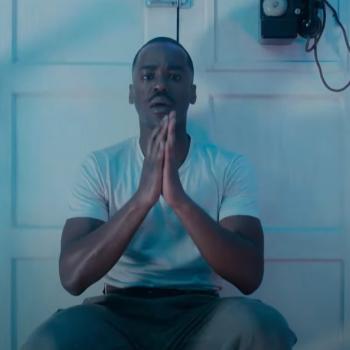It seems as though all the recent superhero movies begin with theology. Green Lantern is no exception: the opening monologue speaks of a race of immortals who oversee and work to protect the universe.
If that isn’t theology, nothing is.

I suspect that many of us who are not regular readers of classic comic books may have allowed Green Lantern to slip our minds. A movie of the sort that Green Lantern is surely could not have been made prior to the availability of today’s CGI special effects. And so it was fun to watch and see something that could once only be the stuff of cartoons and comic books delivered as a live-action movie.
The motion picture starts with a perhaps too hectic attempt to provide backstory, but finally gets into its groove and has us caring about its characters by the end.
The movie has some familiar tropes – the idea that “there’s no such thing as magic” coupled with alleged science that can deliver what magic always promised.
Much of the movie focuses on the symbolism of contrasting energies and the colors that symbolize them: green for will and yellow for fear. And the movie makes the point effectively that alleged lack of fear is simply a fear of facing and acknowledging our fear. Courage is not the lack of fear but the determination, the will, to face it and act in spite of it.
The movie featured one version of the Green Lantern oath, of which there have been several:
In brightest day, in blackest night, No evil shall escape my sight.
Let those who worship evil’s might, Beware my power… Green Lantern’s light!
Did you see it? What do you make of its theology and use of religious imagery, or of its values and its vision of courage and fear, of good and evil?
Let me close by mentioning that I noticed in preparing this blog post that there is a new book out, Green Lantern and Philosophy: No Evil Shall Escape this Book (in The Blackwell Philosophy and Pop Culture Series) which explores the movie from the usual range of interesting academic perspectives.













